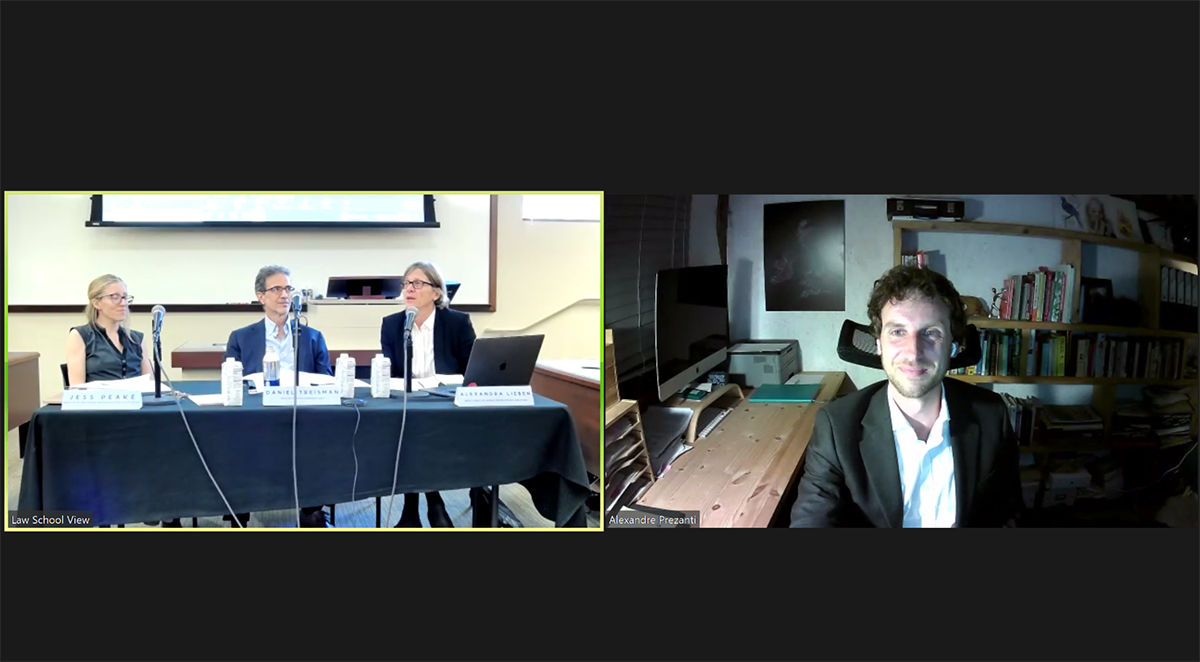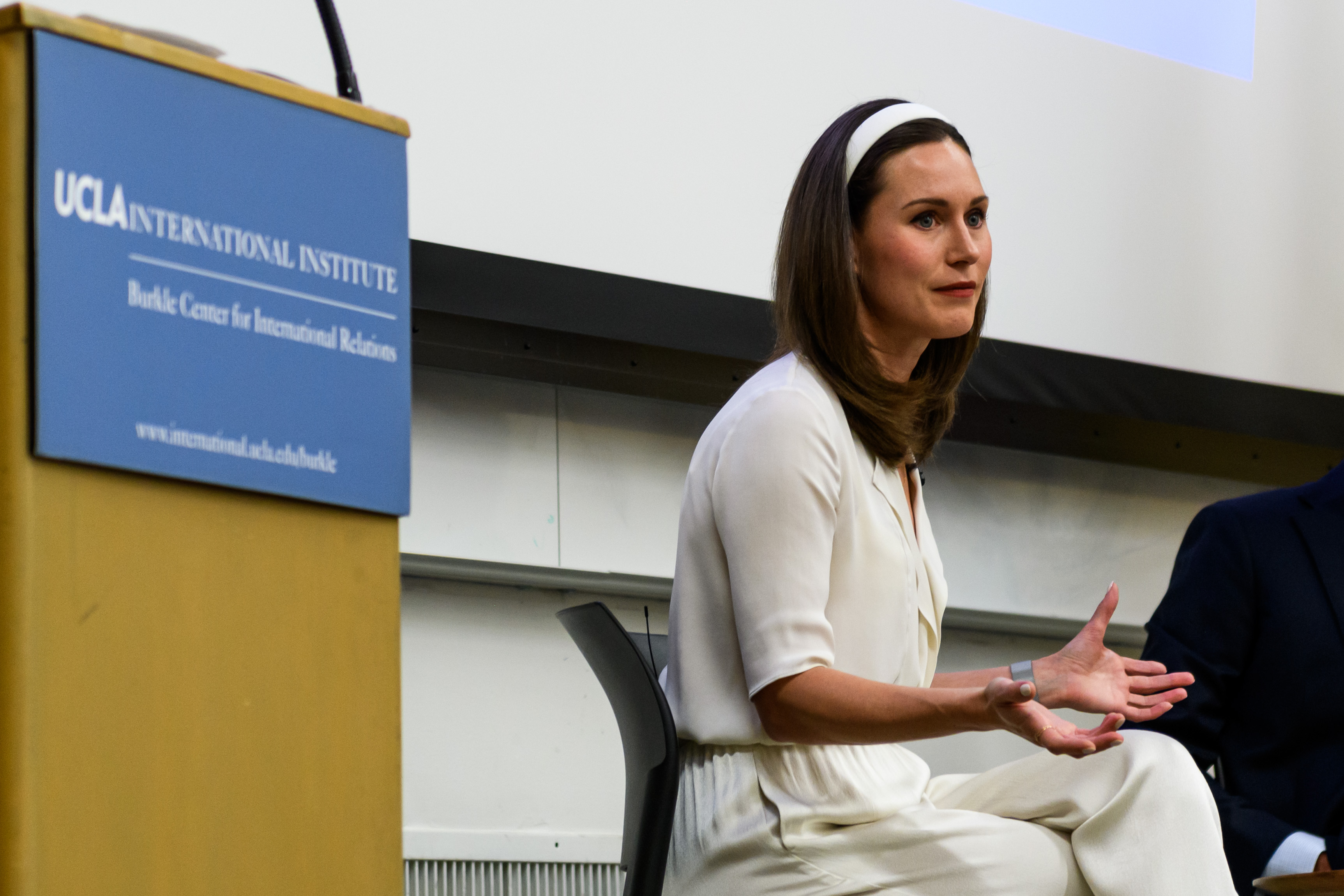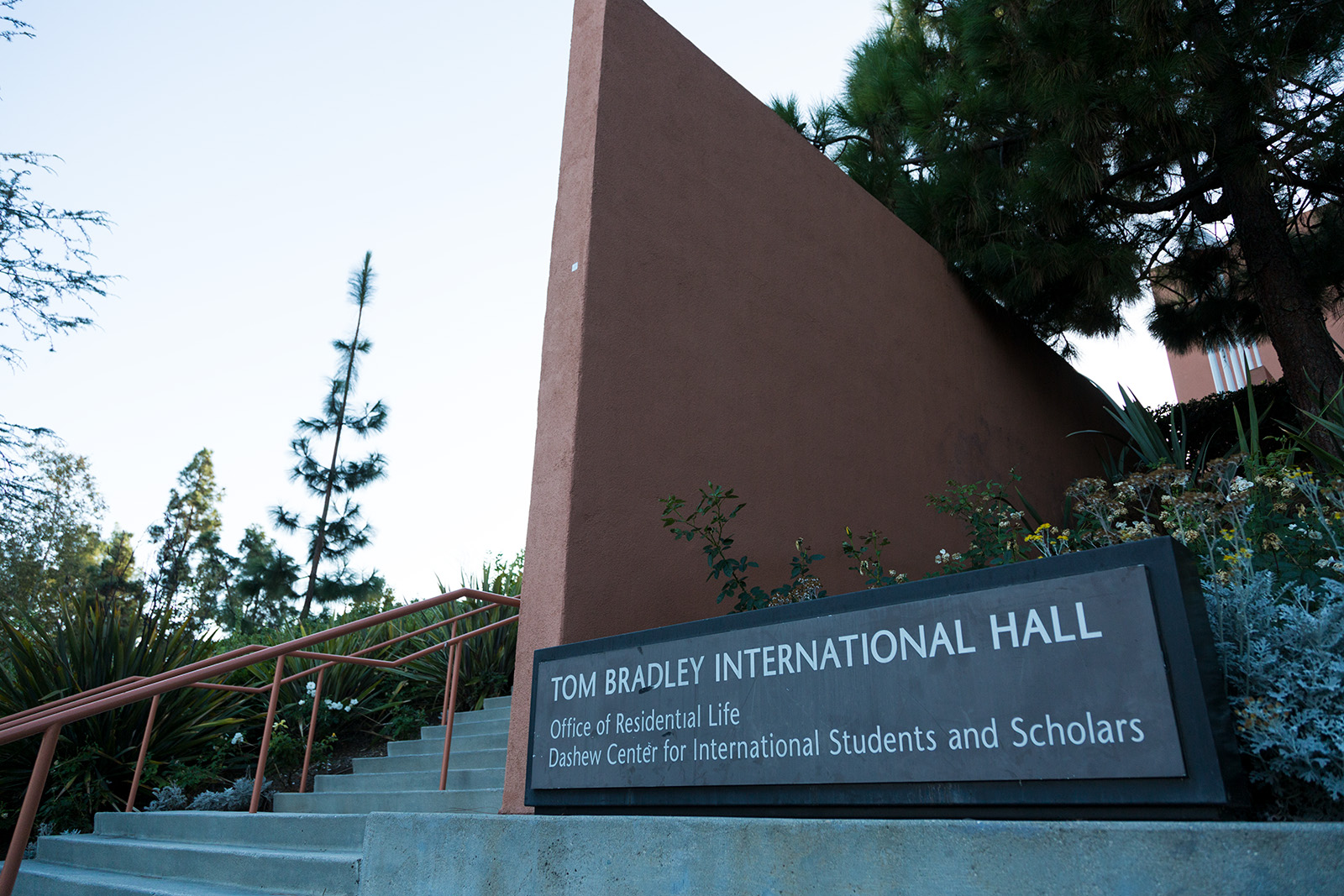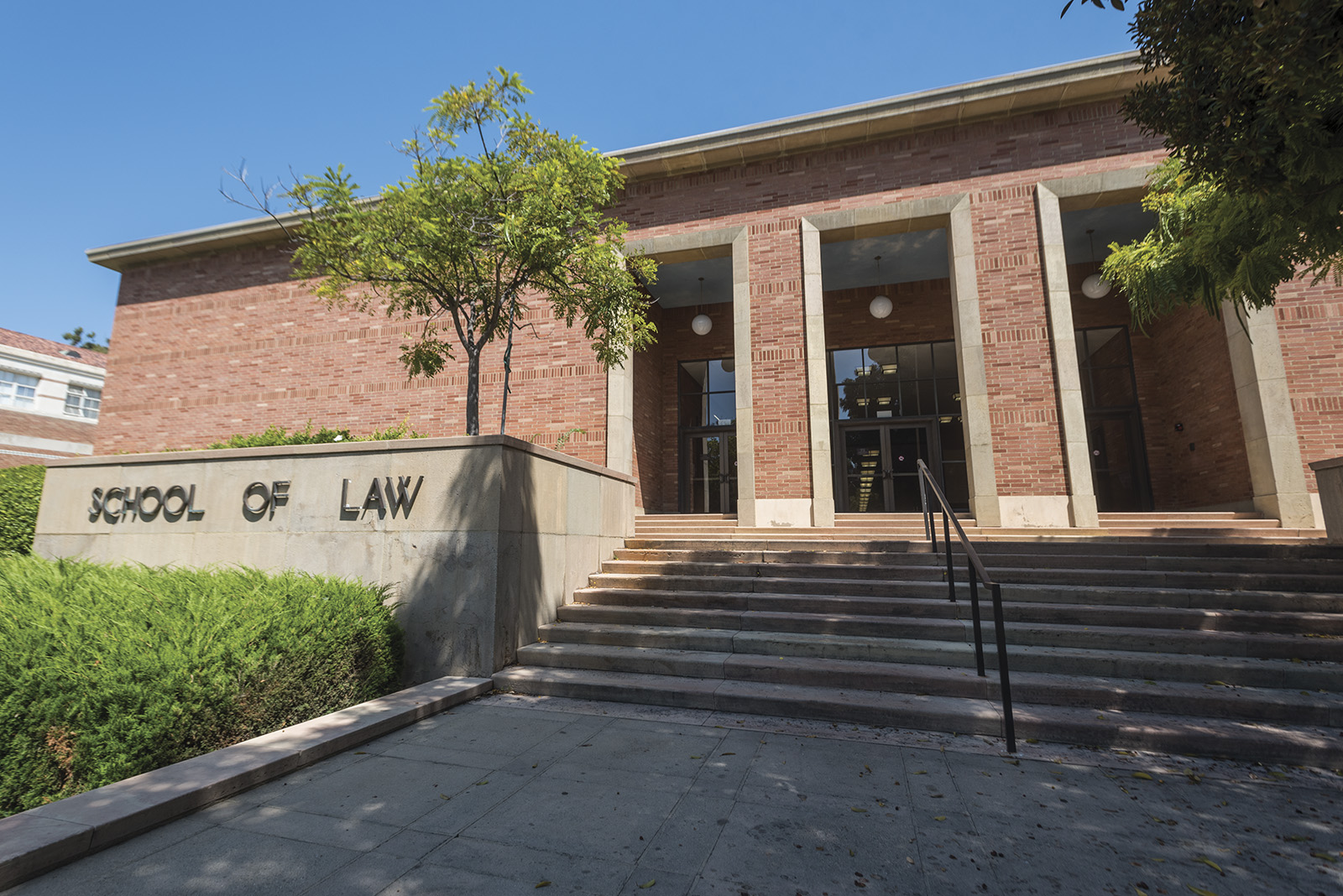UCLA Burkle Center hosts forum on foreign policy, 2024 presidential election
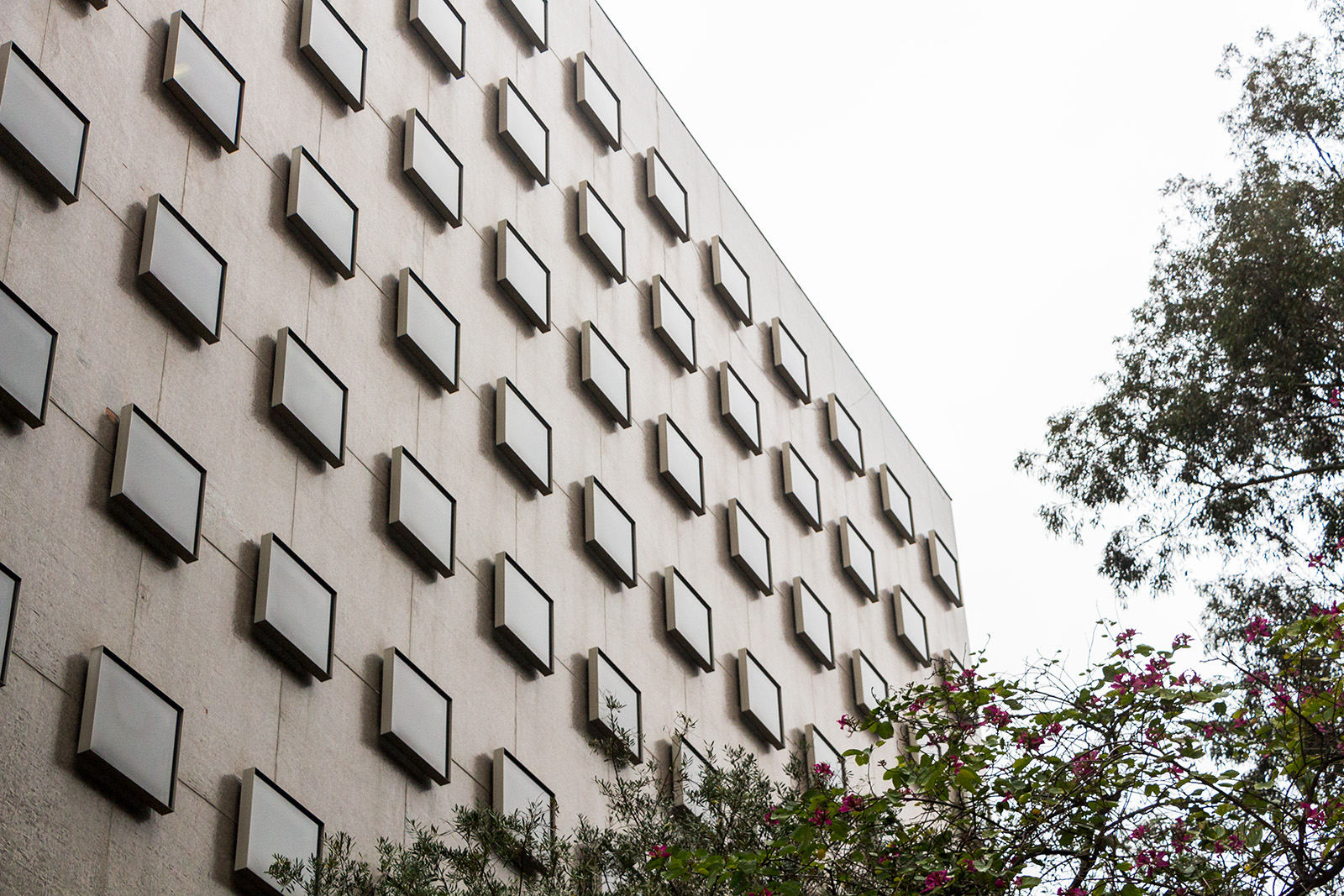
Pictured is Bunche Hall, where the UCLA Burkle Center for International Relations is located. (Daily Bruin file photo)
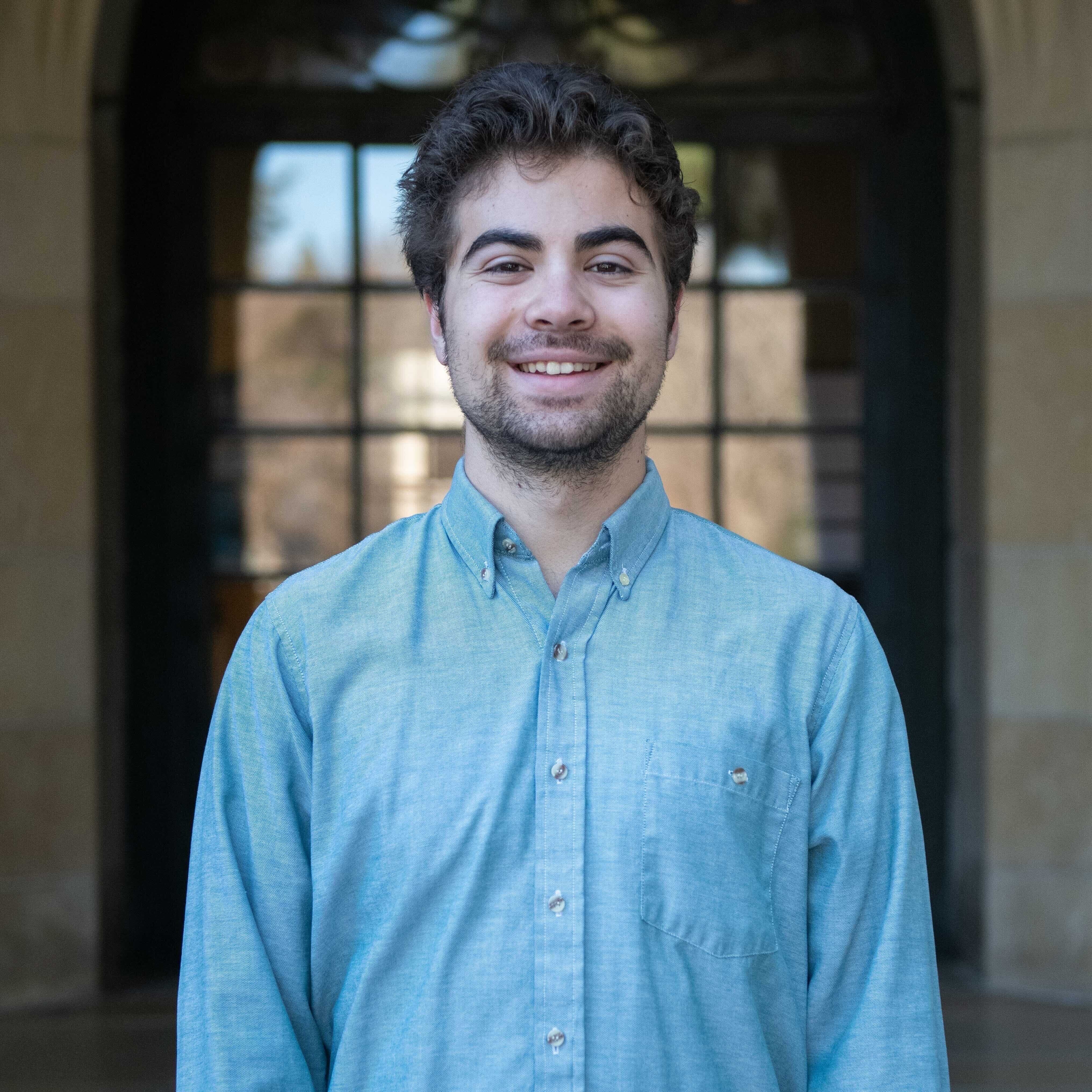
By Sam Mulick
Feb. 29, 2024 7:11 p.m.
The UCLA Burkle Center for International Relations hosted a forum of political science graduate students Monday to discuss the importance of foreign policy ahead of the 2024 United States presidential election.
The event was the first of the year in its Student Voices series and was hosted in collaboration with the Bruin Political Review, which is UCLA’s student-run political journal, and The Generation, which is UCLA’s foreign affairs magazine.
Panelists included political science doctoral students Vincent Doehr, Alfredo Trejo III and Kevin Gatter. The trio discussed topics including conflicts in Israel and Gaza as well as Russia and Ukraine and how foreign policy impacts U.S. citizens domestically. Questions from audience members guided the discussion.
Lauren Akason, an intern at the Burkle Center and the moderator of the forum, opened the event by asking the panelists whether foreign policy matters. In his first response, Trejo III outlined the definition of foreign policy and described its impact on citizens domestically.
“Foreign policy and domestic policy are intertwined a lot, … how a country decides that they want to do trade with another country creates winners and losers at home,” he said.
During the panel, Doehr said people’s daily actions have political and economic consequences that extend beyond the U.S. He added that decisions as simple as the shoes one buys or the food one chooses to eat can have important political ramifications because the production of goods can be traced across borders.
Doehr also said foreign policies are pertinent because many Americans ended up in the U.S. as a result of their families fleeing political persecution or military conflict.
“You can look into anyone’s family history in the U.S., and you can see all of these complicated political histories,” he said. “People who are from places that were ravaged by conflict, ravaged by great power competition, it causes you to question a lot of the fundamental assumptions in … political science.”
The audience asked the panelists to grade President Joe Biden’s foreign policy performance, as well as how U.S. foreign action has evolved since the presidency of Ronald Reagan. The panelists said current foreign policy has resembled that of the Reagan administration.
Gatter, who said Biden has been particularly unlucky in the number of international crises during his presidency, added that the war between Russia and Ukraine resonates with American voters because of the shocking nature of seeing conflict in Eastern Europe.
“The American public and Western public in general has been very accustomed to seeing conflict in places like Africa, the Middle East, Central Asia. … But to see such a violent conflict unfold in Europe was especially shocking to many people,” he said. “That conflict will resonate more with voters.”
Gatter said students’ relationships with foreign policy have changed as a result of the constant reminders of international political conflicts on social media. He added that Israel and Russia have used social media propaganda and disinformation campaigns to try to shape public opinion.
In evaluating how citizens can hold the U.S. accountable for its international actions, Doehr described a recent district court ruling in northern California, in which residents and humanitarian groups accused Biden of being complicit in genocide in Gaza. The judges ruled that although Biden’s administration may be complicit in genocide, U.S. foreign policy lies outside the jurisdiction of the courts and that only the administration can change the policy, Doehr said.
When addressing how foreign policy can impact UCLA students directly, Trejo III said people in other countries may view Americans differently as a result of America’s political past.
Undergraduate and graduate students in the audience said they were glad to have an event where they could hear the different perspectives of students and discuss which political issues were most important to them. Jack Barber, a third-year public affairs student, said he found the event to be especially important because it can help inform voters ahead of the 2024 election.
“There are a lot of people who think these issues aren’t relevant to them,” said Barber, who is also the editor in chief of the Bruin Political Review. “It’s really clear, as we heard today, that a lot of these international issues also have big implications in domestic politics and even in people’s lives who don’t care about politics.”
Nicholas Hu, a graduate student in mathematics, said he gained a new awareness of how politics affects all aspects of daily life and that international and domestic policies are intertwined. He added that he thought it was important for students to be educated about the current conflict in Israel and Palestine.
Barber added that he hopes students left the event with more political awareness to help them make a positive difference in the future.
“Historically, universities have been a really important avenue for change,” he said. “Hopefully, events like these can help people challenge their ideas and maybe learn new things that will help them.



